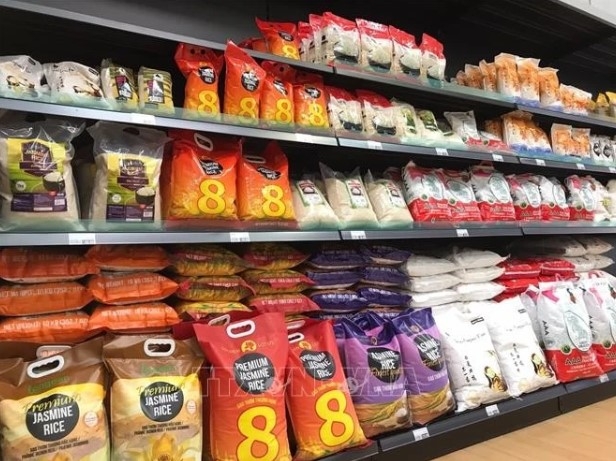Vietnamese products crave out a niche in UK market: Official
Vietnamese goods have steadily established a strong presence in the UK, with exports to this demanding market continously growing since 2021, said Hoang Le Hang, First Secretary of the Vietnam Trade Office in the UK.

Data from the General Department of Vietnam Customs showed that in the first 11 months of 2024, trade between Vietnam and the UK reached over US$7.7 billion, an increase of 18.1% compared to the same period last year. Vietnam recorded a trade surplus of more than US$6.1 billion, up by 21.4%.
The majority of Vietnam’s major exports have seen significant growth, including computers, electronics, and components with 118.6%; fruits and vegetables 50.7%; pepper 46%; confectionery and cereal products 35%; machinery, equipment, and parts 34.5%; steel 34.4%; coffee 34%; and rubber products 33%.
Notably, many “Made in Vietnam” products, from clothing and footwear to tools, electronics, and food items, have found their way into well-established UK supermarket chains.
Vietnamese fashion items, such as summer and autumn collections, can now be found at major retailers like Marks & Spencer (M&S), which holds the largest market share for clothing in the UK, and other stores like UNIQLO, NEXT, and PRIMARK.
Vietnamese food products, including seafood, noodles, dried noodles, and various fresh fruits, are now available in top supermarket chains such as Tesco and Sainsbury's, and premium outlets like Whole Foods and M&S. Vietnamese products are widely sold in supermarkets catering to the Vietnamese community and Asian markets, such as Longdan and Eutek Group.
Hang said that the increasing availability of Vietnamese products on UK supermarket shelves is an encouraging sign, highlighting that Vietnamese goods are becoming more popular and carving out a niche in the UK market.
She attributed the strong growth of Vietnamese exports, especially agricultural products, over the past three years to the UK-Vietnam Free Trade Agreement (UKVFTA), which has eliminated 94% of tariffs on fruit and vegetable imports.
She also pointed to efforts of Vietnamese exporters and the business community in the UK as well as support from authorised agencies at home.
She highlighted a number of activities conducted by the Vietnam Trade Office in the UK in supporting businesses, particularly by providing updates on local trade policies, connecting UK and Vietnamese businesses, and offering guidance on consumer preferences, quality standards, and import regulations.
Hang is optimistic about the potential for continued bilateral trade growth, driven by the UKVFTA and Vietnam's strong economic growth. The UK’s recent accession to the Comprehensive and Progressive Agreement for Trans-Pacific Partnership (CPTPP) further opens up opportunities for exports, especially with new tariff quotas on products like fragrant rice, tuna, and honey, giving Vietnamese exporters a competitive advantage.
However, she also noted challenges such as reduced demand in the UK due to economic downturns and inflation, as well as shipping cost increases.
The UK’s application of the Carbon Border Adjustment Mechanism (CBAM) will also impact exporters in carbon-intensive industries such as ceramics, aluminium, steel, cement, and fertilisers, unless they prepare an adaptation strategy, she said.
She also pointed to competition from other CPTPP member countries in the UK market.
Despite these hurdles, she remained confident that Vietnam can continue to capitalise on opportunities with strategic planning and reforms for sustainable growth in the global market.


